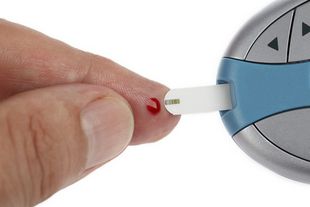Type 1 diabetes (T1D) is the most common childhood metabolic and autoimmune disease. In this chronic autoimmune disease, the immune system destroys the beta cells in the pancreas. The hormone insulin regulates the blood sugar level and enables the transfer of glucose (sugar) from the blood into the cells. People with T1D have a lifelong dependence on artificial insulin. In Germany, approx. 32,000 children and 341,000 adults have this autoimmune disease. Annually, approx. 3,100 children and adolescents under the age of 17 develop T1D (Source: The German Diabetes Association).
In the USA, teplizumab is now approved for use in both adults and children aged 8 and above who have stage 2* type 1 diabetes (the glucose metabolism is already impaired but there are still no symptoms). The medication was granted a priority review and deemed a breakthrough therapy. Teplizumab is an antibody. It binds with certain types of immune system cells and delays the progress of stage 3* type 1 diabetes (clinical symptoms, such as excessive thirst, increased urination, severe weight loss, or fatigue). Teplizumab can deactivate the immune cells that attack the insulin-producing cells while increasing the proportion of the cells that help to suppress the immune response. The medication Tzield is administered as an intravenous infusion once daily for 14 consecutive days.
The safety and efficacy of Tzield was investigated in a randomized, placebo-controlled, double-blind study involving 76 patients with stage 2 type 1 diabetes. The patients were randomly assigned to a group that either received the medication or a placebo once daily via intravenous infusion for 14 days. Teplizumab delayed the onset of the autoimmune disease in patients at high risk of type 1 diabetes on average by two years. This is a statistically significant delay in the development of stage 3 type 1 diabetes.
Source: FDA Approves First Drug That Can Delay Onset of Type 1 Diabetes
(Press release on Nov 17, 2022)
Background information:
*Specialists differentiate between 3 disease stages associated with the onset of type 1 diabetes
Stage 1: The characteristic antibodies are detectable in the blood, but there are no symptoms or irregularities in the metabolism.
Stage 2: Disturbances of the sugar metabolism develop, but this does not generally cause any symptoms.
Stage 3: Onset of the disease. The patients display the symptoms of type 1 diabetes and have to inject insulin.
Original publication:
Kevan C. Herold et al. (2019). An Anti-CD3 Antibody, Teplizumab, in Relatives at Risk for Type 1 Diabetes. NEJM
DOI: 10.1056/NEJMoa1902226

